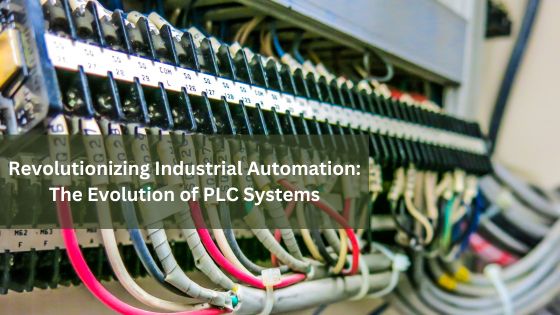Industrial automation has experienced a revolutionary shift over the past few decades, with Programmable Logic Controllers (PLCs) playing a pivotal role in enhancing efficiency and productivity. These sophisticated devices have transformed the way industries operate, providing a robust framework for controlling and monitoring complex processes. Among the most notable pioneers in the field of PLCs is Modicon, a name synonymous with innovation and reliability.
PLCs, including Modicon’s groundbreaking systems, have revolutionized industrial processes by providing a versatile and flexible control platform. Born out of the need to replace cumbersome relay-based control systems, PLCs offered a new era of programmable logic that significantly simplified automation processes. Initially developed for the automotive industry, PLCs quickly found their way into various sectors, including manufacturing, energy, and transportation.
Modicon, a company founded in 1968 by Dick Morley, is recognized as the pioneer of the PLC industry. Their first commercial PLC, the Modicon 084, was introduced in 1969, forever changing the landscape of industrial automation. The Modicon 084 boasted an impressive 12-bit architecture and provided an intuitive programming environment, marking the birth of a new era in industrial control systems.
Over the years, the company continued to push the boundaries of PLC technology. The Modicon 584, introduced in 1975, introduced expanded memory capabilities, allowing for more extensive and complex control tasks. Subsequent models featured improved processing power, enhanced communication capabilities, and advanced programming languages, further solidifying the company’s reputation as an industry leader.
While the company has undoubtedly left an indelible mark on the world of industrial automation, they are not alone in the race for innovation. Numerous companies have emerged, each with their unique contributions to the evolution of PLC systems. Siemens, Allen-Bradley, and Schneider Electric are just a few notable names in the PLC industry that have made significant strides in advancing automation technologies.
Today, PLC systems have become the backbone of industrial control and monitoring, enabling businesses to streamline operations, enhance productivity, and ensure consistent quality. These systems are designed to withstand harsh industrial environments, delivering reliable performance even in the most demanding conditions. With their modular architecture, PLCs allow for easy expansion and customization, making them adaptable to changing operational requirements.
The advent of the Internet of Things (IoT) has further propelled the evolution of PLC systems. By integrating PLCs with IoT technologies, industries can achieve seamless connectivity and gather real-time data from numerous sensors and devices. This connectivity enables predictive maintenance, remote monitoring, and data-driven decision-making, leading to improved operational efficiency and reduced downtime.
Looking ahead, the future of PLC systems is promising. As industries embrace concepts like Industry 4.0 and digital transformation, PLCs will continue to evolve, incorporating advanced features such as artificial intelligence, machine learning, and cloud connectivity. These advancements will enable intelligent automation systems capable of self-optimization and adaptive control, empowering industries to unlock new levels of efficiency and productivity.
In conclusion, the introduction of PLC systems, pioneered by Modicon and other key players, has revolutionized industrial automation. These versatile devices have transformed the way industries operate, offering enhanced control, flexibility, and reliability. With their evolution over the years, PLC systems have become indispensable tools in various sectors, driving efficiency, productivity, and innovation. As we look to the future, PLCs will remain at the forefront of industrial automation, continually evolving to meet the ever-changing demands of the modern world. For more information, visit Mro Electric blog.




















